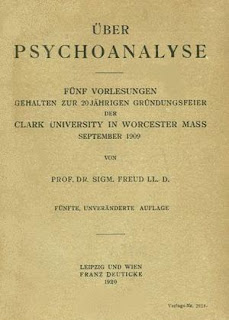Who is this person labelled the “seriously mentally ill?” The Alternative 2010 Conference that was held recently in California brought out a lot of commentary on all sides about this thing called serious mental illness.
My son was accepted by many excellent universities, one of them an Ivy League one. I mention this not to brag, but to make the following point. A scant two years later he would never be the “brilliant” student he once was, according to his doctors. They told me very sadly that he was seriously mentally ill and since he didn’t seem to be getting better, this was sort of it for him. I was to take him home and get used to the idea that his life (and ours) as we knew it was over.
I regret the time wasted not being told the truth about so-called mental illness. I look at Chris now, and I am always amazed at the intellectual calibre of the books he reads and the depth and breadth of his thinking processes. There’s no reason why he can’t excel at any university course he sets his mind to, should he so desire. I regret believing that there was no other option other than for my son to take the drugs we were told he needed to take so that his brain wouldn’t deteriorate any further than it presumably had. I regret that I didn’t know about alternatives. One reason I didn’t know about alternatives is precisely because NAMI, pharma, the psychiatric industry has been pushing the idea of serious mental illness on people like me. That’s their preserve. They exist because they insist that there is this special category of people.
Gradually it began to dimly dawn on me that maybe my husband and I had something to do with the state of mind my son was in. It should be at least part of the story, shouldn’t it? Surely there was something we could do or think that would help? Not when the mental health industry juggernaut gets involved. That kind of thinking is considered heresy and needs to be stamped out at every possible opportunity.
Chris remained seriously mentally ill while he was under the care of the psychiatric system and until I started to doubt the system. The psychiatrists we dealt supposedly believed in what they did, but obviously what they did was a failure. They didn’t admit to this. They turned thumbs down on my suggestions. They claimed that these are special cases who need their “help.” I don’t know what Dr. X was doing about serious mental illness, because whatever he was doing (the drugs, the therapy) wasn’t working. How could he possibly claim any legitimacy in this area and that he knew something that we didn’t? When Ian and I finally were forced to go behind his back to get Chris down to 25 mgs of clozapine, Dr. X. pleaded with us not to take it any lower because lower doses weren’t even therapeutic! I didn’t see anything therapetic happening at the higher doses or in the day program Chris attended, but this must somehow have escaped Dr. X, whose paycheck relied on the existence of serious mental illness.
They try to protect the “seriously mentally ill” through denying them their right to have their own voice, be it through medications or lowered expectations. Those who believe in the “seriously mentally ill” can’t seem to grasp that having the “seriously mentally ill” exist is a colossal failure of the parts of those who claim to be doing something about it. It is an indictment of medications, genetic links, psychiatry as practiced most everywhere today, and history. Thinking that there is something called serious mental illness says that people aren’t connecting cause with effect. Chances are when pressed, that people who do the labelling believe that there is bad brain biochemistry rather than bad environments.
I don’t believe in “the seriously mentally ill” but I do believe that they will continue to exist as long as the real problems of the so called seriously mentally ill go unnoticed by those who claim they are treating them. “Seriously mentally ill” was something that went away after I began pursuing serious understanding of what Chris was going through and why.

